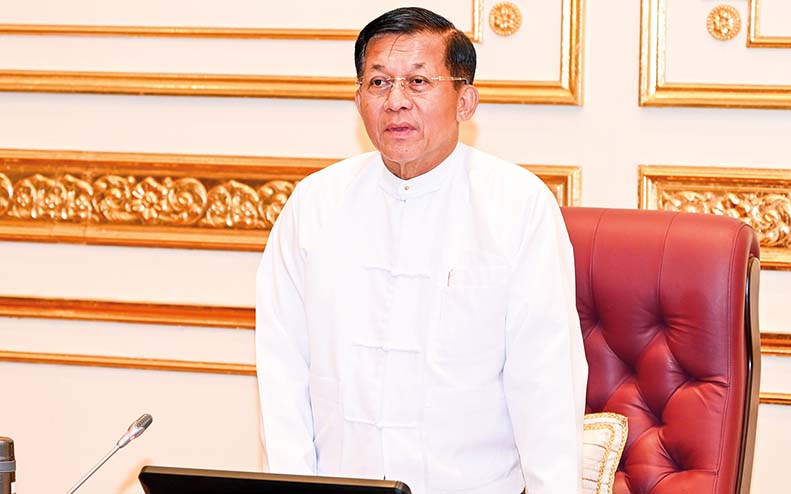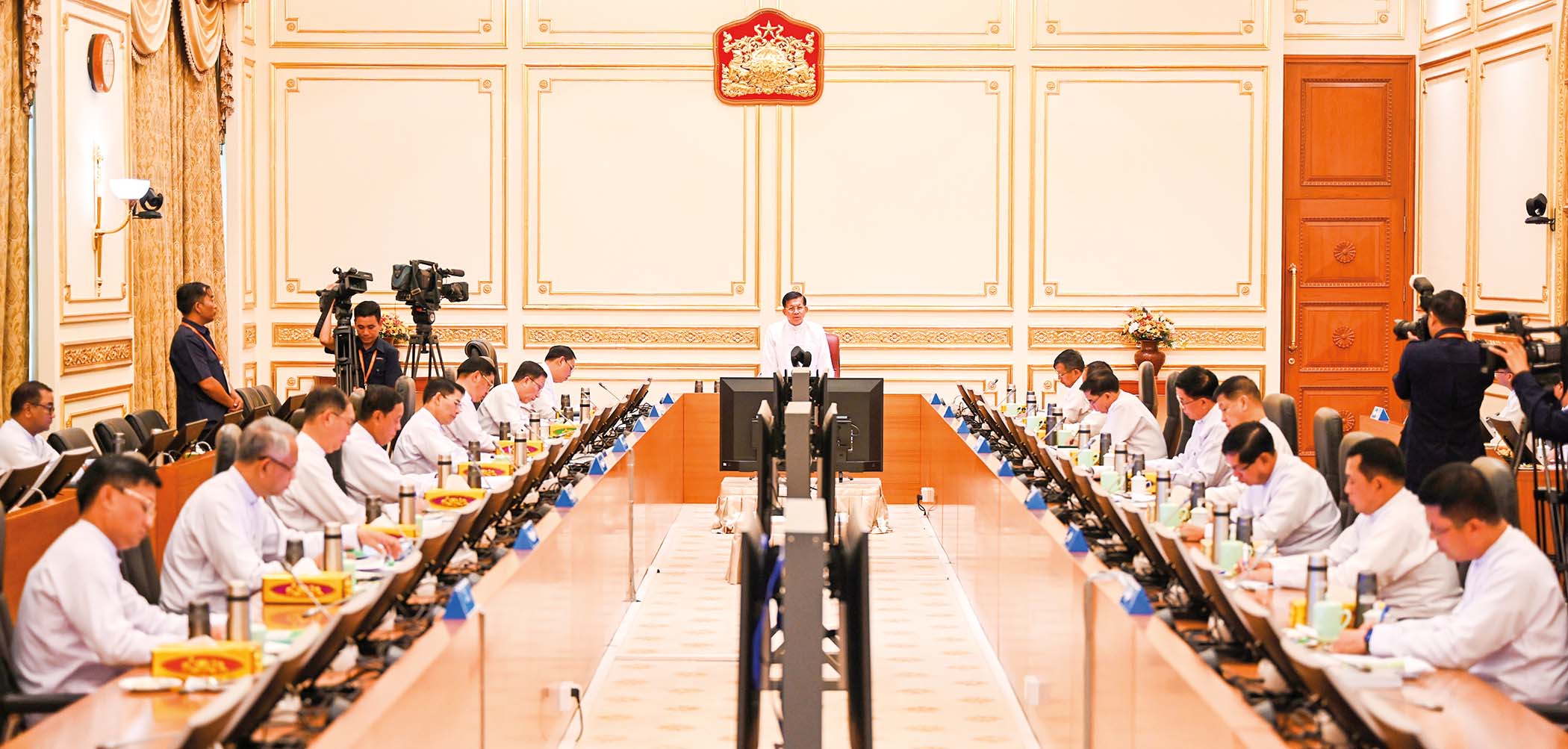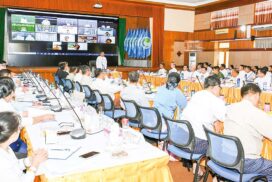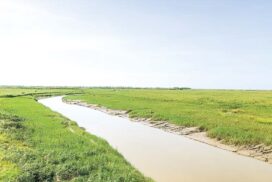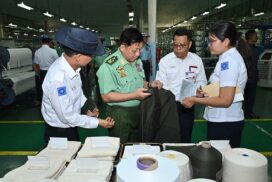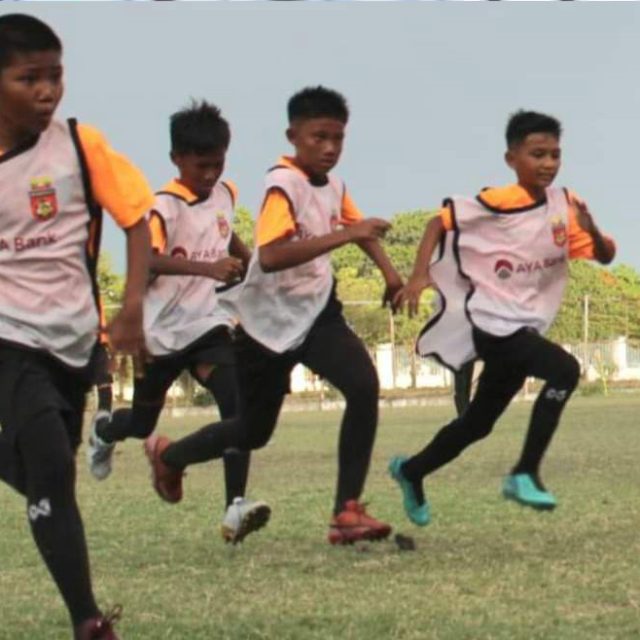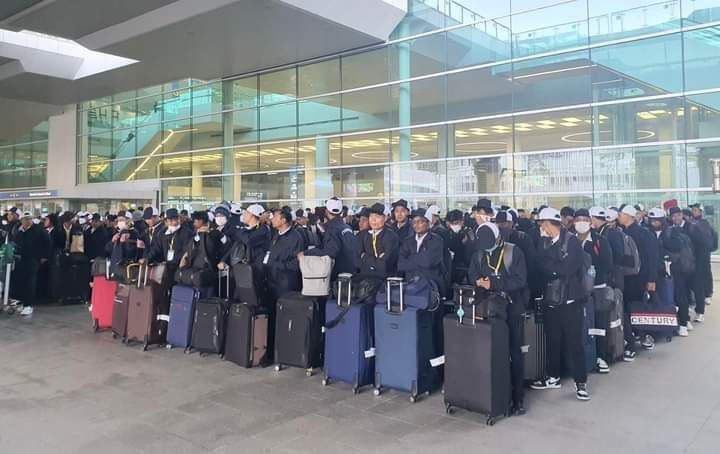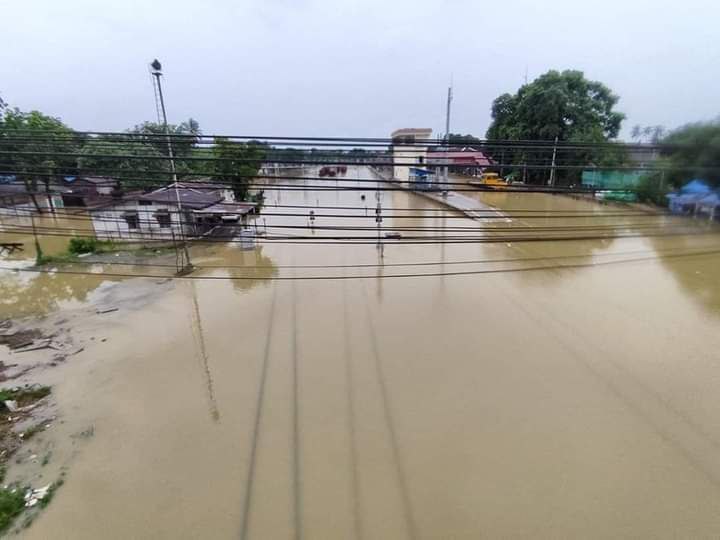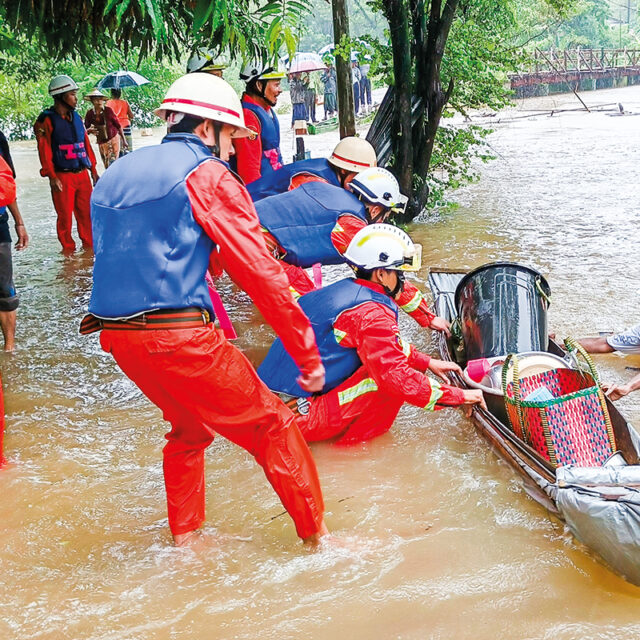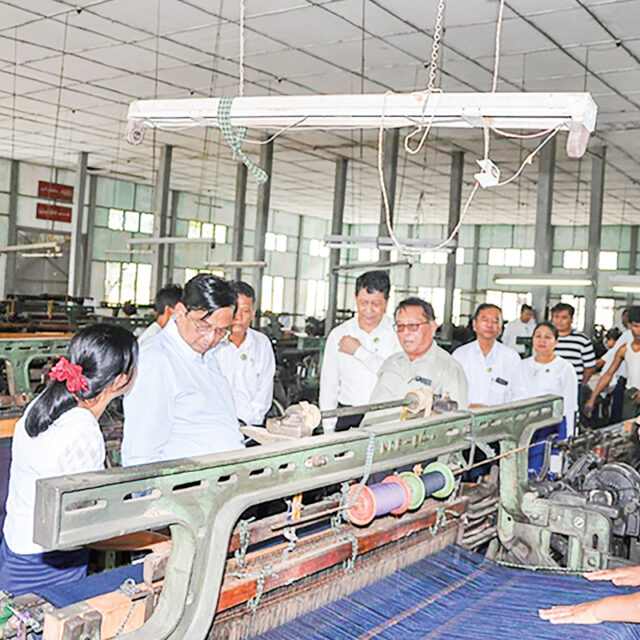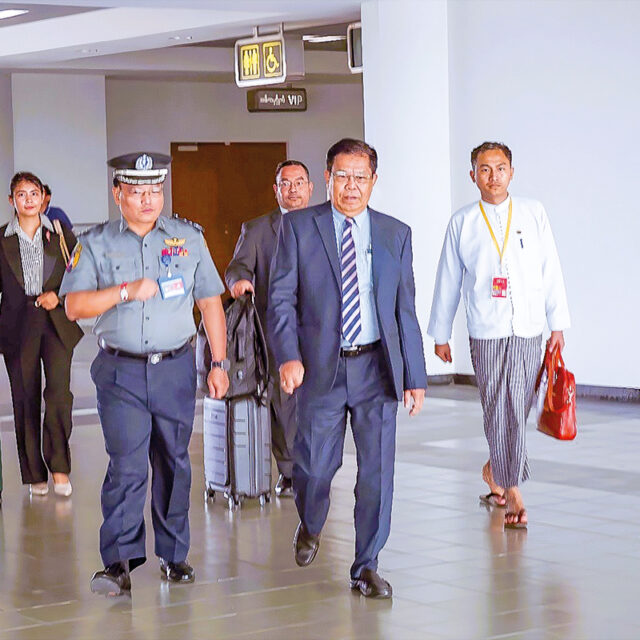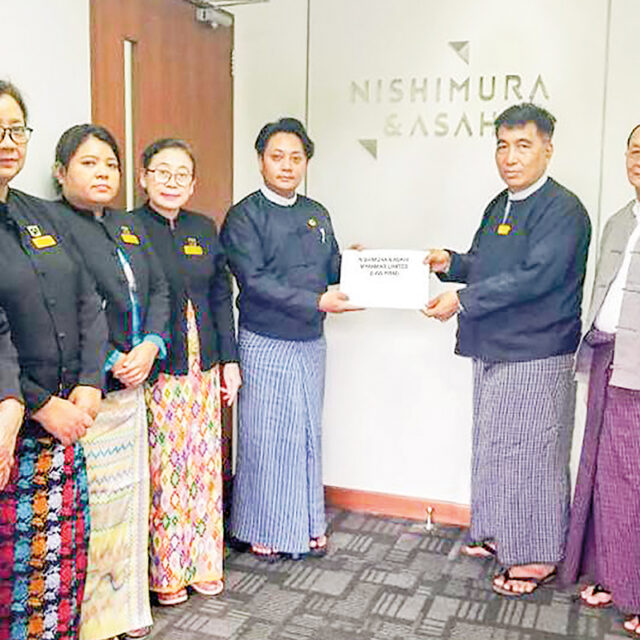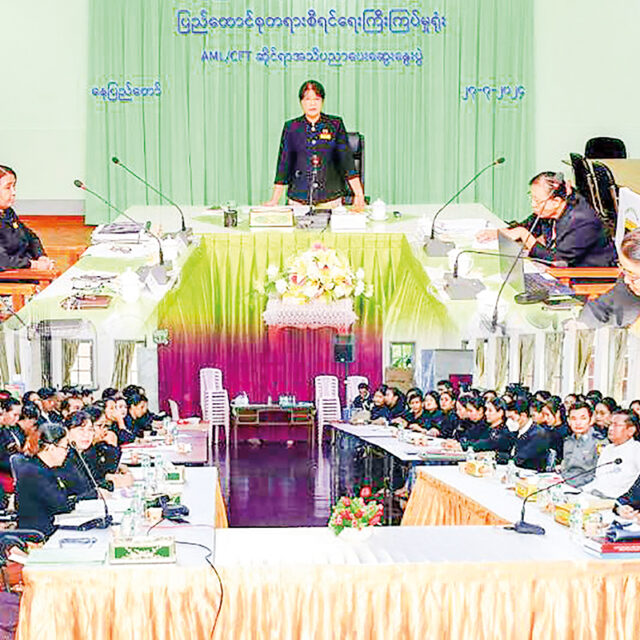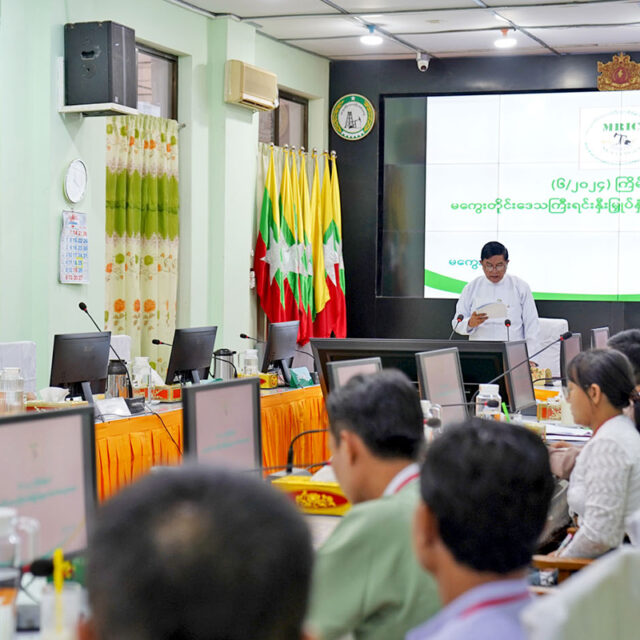Prime Minister Senior General Min Aung Hlaing, Chairman of the State Administration Council, delivered an address at the national manufacturing promotion meeting in Nay Pyi Taw yesterday. He emphasized the importance of adopting systematic techniques in the breeding sector, highlighting their superiority over traditional methods.
The Senior General outlined three key sectors that should be addressed to promote the manufacturing sector effectively. These include ensuring sufficient local consumption, increasing export volumes through surplus production, and developing substitute import products. Priority should be given to achieving self-sufficiency in agricultural and breeding products consumed daily by the people, while also exploring the export potential of less commonly used products.
In 2021, the government made significant efforts to boost the State economy through product exports and the development of both on-ground and underground resources in the trading sector. The exploration of these resources is being carefully managed to ensure the long-term interests of the country.
Turning to the farming sector, the Senior General emphasized two main objectives: meeting targeted crop production rates and maximizing production capacity. Achieving these goals requires four crucial elements: seedlings, land, water, and modern techniques. By focusing on these factors, production costs can be reduced, crop production rates can be improved, job opportunities can be created, and both self-sufficiency and export volumes can be enhanced.
In the livestock breeding sector, with a population of approximately 55 million, the Senior General underlined the importance of ensuring food security throughout the entire country, rather than merely satisfying sufficiency in specific states and regions. Balancing the consumption and production rates of meat and fish is essential to stabilize prices. Moreover, the Senior General advocated for the adoption of systematic techniques in breeding instead of relying solely on traditional methods.
Since 2016, the cultivation of cotton plants has reduced the clothing sector’s reliance on basic needs. Currently, the country’s cotton requirement is 363.22 million visses, but production stands at only 201 million visses. To meet the targeted cotton production rate of 700 visses per acre, the country can fulfil local demand and export the surplus.
The Senior General emphasized the need to increase production rates in the agricultural sector by applying the four key elements of seedlings, land, water, and techniques. He stressed that crops should meet local and foreign demands while maintaining quality. In livestock breeding, modern techniques should be developed to meet the needs of meat, fish, and eggs. Officials must also enforce regulations to ensure farmland is used exclusively for recognized crops and not repurposed unlawfully. Additionally, manageable-scale river water pumping projects and land repairs through the growth of green manure or Sunnhemp present potential opportunities. The relevant ministries should research the benefits of cultivating Sunnhemp.
In conclusion, the Senior General urged the relevant ministries to study international investment in the agriculture and livestock breeding sectors, as well as methods to promote such investments. He emphasized the importance of building an industry based on the farming sector and working in cooperative groups within the agriculture and livestock breeding sectors. The agriculture sector plays a vital role among the three sectors of agriculture, industry, and services in national development. Micro, Small, and Medium Enterprises (MSMEs) rely on agricultural and livestock products. By utilizing farmland effectively, industrialized farming can reduce production costs and increase production rates. Thus, research should be conducted to identify specific vegetables with export potential. Efforts should be made to develop MSMEs within the manufacturing sector based on agriculture and livestock industries. — MNA/KTZH
Systematic techniques key to advancing breeding sector, says Senior General
- July 16, 2023
- 413

